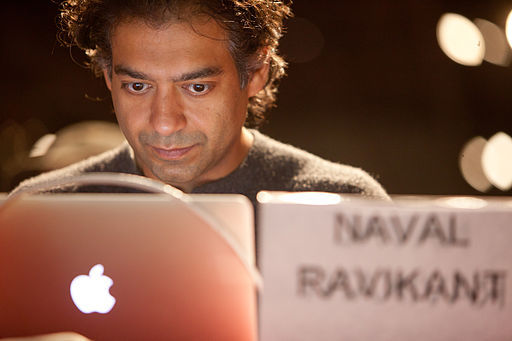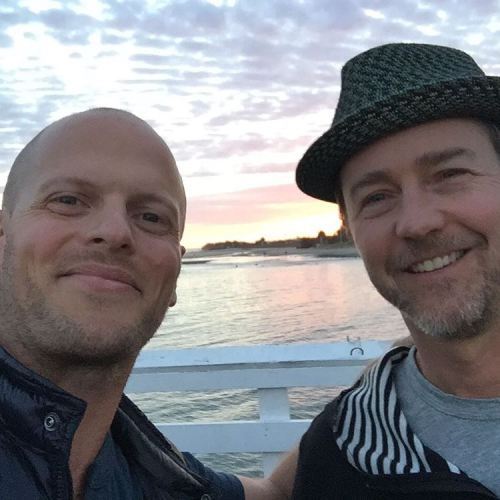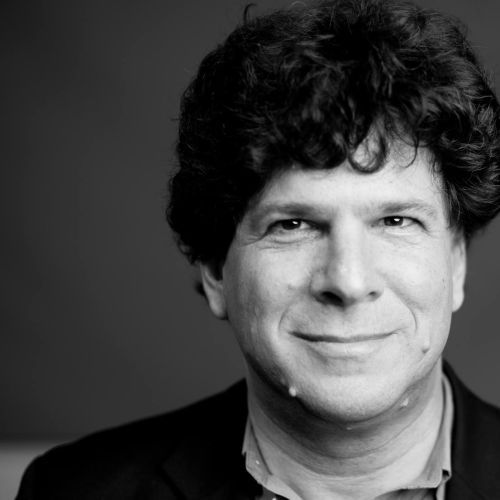Timothy Ferriss's Blog, page 89
February 10, 2016
How Seth Godin Manages His Life — Rules, Principles, and Obsessions

(Photo: Brian Bloom)
“We can’t out-obedience the competition.” – Seth Godin
I expected this episode to be amazing, and Seth 10x’d expectations. He’s incredible.
Seth Godin (@thisissethsblog) is the author of 17 bestselling books that have been translated into more than 35 languages. He writes about the way ideas spread, marketing, strategic quitting, leadership, and — most of all — challenging the status quo in all areas. His books include Linchpin, Tribes, The Dip, Purple Cow, and What to Do When it’s Your Turn (and it’s Always Your Turn).
Seth has founded several companies, including Yoyodyne and Squidoo. His blog (which you can find by typing “Seth” into Google) is one of the most popular in the world. In 2013, Godin was inducted into the Direct Marketing Hall of Fame. Recently, Godin turned the book publishing world on its ear by launching a series of four books via Kickstarter. The campaign reached its goal in just three hours and became the most successful book project in Kickstarter history.
In this episode, we cover dozens of topics and stories, including some he’s never discussed publicly before. Here’s a small sample:
A list of the audiobooks he listens to repeatedly, some once per month
His morning routine, breakfast, dietary habits, and email processing
Meditative practices
Why he’s fixated on and mastered coffee and vodka, despite the fact that he consumes neither
Suggestions for going from “wantrepreneur” to entrepreneur
How to determine if you’re better off a “freelancer” or “entrepreneur,” and the differences in his mind
Why he has the most impressive cookbook collection our mutual chef friends have ever seen
His rules for saying “no” to opportunities, how he thinks about public speaking, etc.
His recipe for honey oatmeal vodka, and his favorite chocolates in the world
Thoughts on improving how parents educate their children
General philosophies and guidelines he uses for life management
Enjoy!
Listen to it on iTunes.
Stream by clicking here.
Download as an MP3 by right-clicking here and choosing “save as.”
Want to hear another podcast related to leadership and marketing? — Listen to my conversation with Derek Sivers. In my conversation with Seth Godin, he mentions that this was his favorite episode. “I love Derek,” were his exact words. In this podcast, Derek discusses developing confidence, finding happiness, and saying “no” to millions (stream below or right-click here to download):
This podcast is brought to you by Audible. I have used Audible for years and I love audio books. I have 2 to recommend:
The Graveyard Book by Neil Gaiman
Vagabonding by Rolf Potts
All you need to do to get your free audiobook and a free 30-day trial is go to Audible.com/tim. Choose one of the above books, or choose between more than 180,000 audio programs. That could be a book, a newspaper, a magazine or even a class. It’s that easy. Go to Audible.com/Tim and get started today. Enjoy!
This podcast is brought to you by 99Designs, the world’s largest marketplace of graphic designers. I have used them for years to create some amazing designs. When your business needs a logo, website design, business card, or anything you can imagine, check out 99Designs.
I used them to rapid prototype the cover for The 4-Hour Body, and I’ve also had them help with display advertising and illustrations. If you want a more personalized approach, I recommend their 1-on-1 service. You get original designs from designers around the world. The best part? You provide your feedback, and then you end up with a product that you’re happy with or your money back. Click this link and get a free $99 upgrade. Give it a test run.
QUESTION(S) OF THE DAY: What advice from Seth did you find most helpful? More importantly, how will you apply it to your life? Please let me know in the comments.
Scroll below for links and show notes…
Selected Links from the Episode
Learn more about the high-end audio community – Audiogon
What to Do When it’s Your Turn (and it’s Always Your Turn) by Seth Godin
First, ten – A simple theory on how to discern between a good and bad business idea
The War of Art by Steven Pressfield
Make Good Art – The commencement speech by Neil Gaiman
Read books by Cory Doctorow
Understanding Comics by Scott McCloud
Snow Crash by Neal Stephenson
The Diamond Age by Neal Stephenson
Pattern Recognition by William Gibson
Goal Setting, How to Stay Motivated, and Secrets of Closing the Sale by Zig Ziglar
The Pema Chodron Audio Collection by Pema Chodron
Leap First by Seth Godin
The Art of Possibility byRosamund Stone Zander and Benjamin Zander (Get it on Audio)
Just Kids by Patti Smith (Get it on Audio) [Note: “The single best Audiobook ever recorded.” – Seth Godin]
Debt by David Graeber (Get it on Audio)
Get crazy about chocolate – Rogue Chocolatier, Askinosie and Cacao Hunters
Learn more about Seth’s altMBA
Replay by Ken Grimwood
Learn more about Josh Pais’s Committed Impulse acting lessons
Visiting New York? Check out, By the Way Bakery
Show Notes
How Seth Godin prepares coffee and vodka [5:05]
The story behind the most impressive cookbook collection [9:37]
Seth’s most recommended cookbooks and methods [11:32]
On railing against various industrial complexes [15:07]
How Seth Godin consumes media [18:07]
Seth Godin’s rules for speaking engagements and why he developed them [20:42]
How to navigate big transitions in life [28:07]
On the decision to publish a daily blog [31:24]
Seth Godin’s writing process [33:07]
Seth Godin’s top business decisions [38:44]
Discerning between good and bad ideas [42:44]
Determining if you should not become an entrepreneur [48:30]
How Seth Godin processes email [51:44]
The philosophy of categorically saying ‘no’ to specific distractions [57:32]
Why everyone should blog every day [1:01:42]
The opportunities Seth Godin is happy he said ‘no’ to [1:04:49]
The story of money [1:06:38]
When you hear the word successful, who is the first person that comes to mind and why? [1:09:49]
Things that Seth Godin has changed his mind about [1:10:40]
Things that Seth Godin believes that most people would find crazy [1:11:52]
Most gifted books [1:12:24]
What purchase of $100 or less has most positively impacted Seth’s life [1:24:34]
Seth Godin’s eating habits and morning rituals [1:30:34]
The value of having an office [1:32:37]
What would Seth do to educate children [1:34:22]
Suggested practices for overwhelmed parents [1:37:34]
Seth Godin’s current projects [1:38:52]
Who helps tell Seth Godin when he is wrong [1:43:32]
What advice would you give to your 30-year-old self [1:45:49]
How Seth Godin gets over periods of discomfort [1:47:29]
Seth Godin’s meditation process [1:49:47]
If you could put one billboard anywhere, with anything on it, where would it be and what would it say? [1:53:01]
Seth Godin on commencement speeches [1:53:02]
Asks or requests of you, the listener [1:54:58]
Talking about the almond cookies [1:56:38]
People Mentioned
Marco Arment
Chris Schlesinger
Zig Ziglar
Chip Conley
Steven Pressfield
Rick Rubin
Neil Gaiman
Bill Gross
Jacqueline Novogratz
Susan Piver
Jay Levinson
February 2, 2016
How to Practice Poverty and Reduce Fear

“Establish business relations with poverty.”
– Seneca
These 10-15 minutes are gold. I revisit this letter of Seneca at least once a quarter, and I hope you find this episode equally powerful.
The careful listener will find an extremely practical blueprint (and exercises) for optimizing performance in high-stress situations.
If you only have 60 seconds for one highlight, pay particular attention to this passage.
If you enjoy the teachings, I highly recommend listening to more of Seneca’s letters. All of my favorites can be found in The Tao of Seneca: Practical Letters from a Stoic Master. For more audiobooks I love, take a look at audible.com/timsbooks.
Enjoy!
Listen to it on iTunes.
Stream by clicking here.
Download both as MP3 by right-clicking here and choosing “save as.”
Want to hear another segment of The Tao of Seneca and dig deeper into stoicism? — Listen to On Groundless Fears. In this episode, I dig deeper into the value of stoicism and examining unfounded fears and untested assumptions (stream below or right-click here to download):
This episode is brought to you by Headspace, the world’s most popular meditation app (more than 4,000,000 users). It’s used in more than 150 countries, and many of my closest friends swear by it. Try Headspace’s free Take10 program — 10 minutes of guided meditation a day for 10 days. It’s like a warm bath for your mind. Meditation doesn’t need to be complicated or expensive, and it’s had a huge impact on my life. Try Headspace for free for a few days and see what I mean.
This podcast is also brought to you by Wealthfront. Wealthfront is a massively disruptive (in a good way) set-it-and-forget-it investing service, led by technologists from places like Apple. It has exploded in popularity in the last two years and now has more than $2.5B under management. Why? Because you can get services previously limited to the ultra-wealthy and only pay pennies on the dollar for them, and it’s all through smarter software instead of retail locations and bloated sales teams.
Check out wealthfront.com/tim, take their risk assessment quiz, which only takes 2-5 minutes, and they’ll show you—for free–exactly the portfolio they’d put you in. If you want to just take their advice and do it yourself, you can. Well worth a few minutes to explore: wealthfront.com/tim.
QUESTION(S) OF THE DAY: How has listening to Seneca’s teachings changed or improved your life? Share your thoughts in the comments.
Scroll below for links and show notes…
Show Notes
On keeping holiday without extravagance [8:02]
Testing the constancy of one’s mind [10:05]
The benefits of finding pleasure in scanty fair [13:22]
Ungoverned anger begets madness [15:20]
February 1, 2016
The Music a World-Class DJ Uses to Fall Asleep

I get asked about nighttime rituals a lot.
Though I always ask high-profile podcast guests about their morning routines, the evening wind down can get neglected.
So, what to do if you have trouble falling asleep? Or, like nearly all males in my family, you have severe onset insomnia? The morning might be a breeze, while the darkness is a nightmare.
I thought it’d be fun to look at a real-world example, sent to me via text by Justin Boreta, best known as “Boreta” of The Glitch Mob, one of the world’s biggest electronic bands. Their music has been featured in movies like Sin City II, Edge of Tomorrow, Captain America, and Spiderman.
Below is what he SMS’d me after listening to my 5 Tools I Use for Faster and Better Sleep (Thanks for permission to share, Justin!):
Ahoy, Cap’n Ferriss :) I just heard your sleep podcast and wanted to share a great little routine I’ve been doing.
An incredible composer named Max Richter created this 8-hour album that is designed to help you fall asleep. http://time.com/4022816/max-richter-sleep/
There is a shortened version that I listen to on Spotify: https://open.spotify.com/album/7tP7WLxusDpTi1gf1JFsrT
I put it on very quietly as I am starting my bedtime routine, so it usually ends 15-20 minutes after I’m asleep. Or I will use the Sonos sleep timer, if I’m at home.
It started to have this Pavlovian knockout effect after a while if I use it every day, like a lullaby.
Alternatively, if that’s too much melody, there’s an artist called Mute Button that has high-quality, long-field recordings. The gentle rain sounds + sleep timer are fantastic. I find it great to drown out hotel sounds when traveling. https://open.spotify.com/artist/53gtZjk5vhB6CxRUEbnPet
If you find these tips useful, don’t miss my longer interview with Justin, which is full of detailed tactics for life and business.
Questions for you all — Would you like me to describe more nighttime routines of top performers? And what nighttime routines or tools have you found most helpful in your own life?
Please let me know in the comments below. Thanks!
Sweet dreams,
Tim

January 30, 2016
Naval Ravikant on Happiness Hacks and the 5 Chimps Theory

Naval Ravikant By Kris Krüg | CC BY-SA 2.0, via Wikimedia Commons
“I actually think happiness is the absence of suffering. It comes from peace. That comes from being careful about desire, judgment, and reaction.” – Naval Ravikant
When a guest is nominated for “Podcast of the Year,” that’s usually a good sign to bring them to the show for more. That’s why Naval Ravikant (@naval) is back, and this time, he’s answering your questions. For those of you that missed round 1, Naval is the CEO and a co-founder of AngelList. He has invested in more than 100 companies, including more than a few “unicorn” mega-successes.
Maybe most importantly, he has developed a diverse set of skills and knowledge that are invaluable. Even if you have no interest in startups or investing, this will be well worth your time. In this episode, Naval answers your top 10 questions from Reddit, including topics such as:
Artificial intelligence
Most recommended books
Happiness hacks
Conflict resolution
Startup tips
And much, much more…
Enjoy these fascinating insights from Naval.
Listen to it on iTunes.
Stream by clicking here.
Download as an MP3 by right-clicking here and choosing “save as”.
Want to hear another podcast from a world class philosopher-entrepreneur? — Listen to my conversation with Derek Sivers. In this episode, we discuss developing confidence, finding happiness, and saying “no” to multi-million dollar exits (stream below or right-click here to download):
This podcast is also brought to you by Wealthfront. Wealthfront is a massively disruptive (in a good way) set-it-and-forget-it investing service, led by technologists from places like Apple and world-famous investors. It has exploded in popularity in the last 2 years and now has more than $2.5B under management. In fact, some of my good investor friends in Silicon Valley have millions of their own money in Wealthfront. Why? Because you can get services previously limited to the ultra-wealthy and only pay pennies on the dollar for them, and it’s all through smarter software instead of retail locations and bloated sales teams.
Check out wealthfront.com/tim, take their risk assessment quiz, which only takes 2-5 minutes, and they’ll show you—for free–exactly the portfolio they’d put you in. If you want to just take their advice and do it yourself, you can. Or, as I would, you can set it and forget it. Well worth a few minutes: wealthfront.com/tim.
This podcast is brought to you by Athletic Greens. I get asked all the time, “if you could only use one supplement, what would it be?” My answer is, inevitably, Athletic Greens. It is my all-in-one nutritional insurance. I recommended it in The 4-Hour Body and did not get paid to do so. Get 50% off your order at Athletic Greens.com/Tim.
QUESTION(S) OF THE DAY: In terms of making or saving money, what are your biggest frustrations or areas where you struggle most? Please let me know in the comments.
Scroll below for links and show notes…
Enjoy!
Selected Links from the Episode
Love Yourself Like Your Life Depends On It and Live Your Truth by Kamal Ravikant
Distress by Greg Egan
by Garth Ennis and Darick Robertson
Genome, The Red Queen, The Rational Optimist, The Origins Of Virtue and The Evolution Of Everything by Matt Ridley
The Essential Writings by Mahatma Gandhi and Judith Brown
The Tao of Philosophy by Alan Watts
Illusions by Richard Bach
The Bed of Procrustes by Nassim Nicholas Taleb
Fear and Loathing in Las Vegas by Hunter S. Thompson
Perfectly Reasonable Deviations from the Beaten Track by Richard Feynman
The Power of Myth by Joseph Campbell
Tao Te Ching by Lao Tzu
Falling into Grace by Adyashanti
God’s Debris and How to Fail at Almost Everything and Still Win Big by Scott Adams
The Origin of Consciousness in the Breakdown of the Bicameral Mind by Julian Jaynes
Mastering the Core Teachings of the Buddha by Daniel M. Ingram
Total Freedom by Jiddu Krishnamurti
The Power of Habit by Charles Duhigg
The Lessons of History by Will Durant and Ariel Durant
Too Soon Old, Too Late Smart by Gordon Livingston
The Prophet by Kahlil Gibran
Do you need help with your US visa? Check out Unshackled
Show Notes
Thoughts on the AI industry [6:41]
The future of work [9:26]
An overview of how Naval would change the education system [14:51]
How Naval Ravikant manages conflict and anger [22:05]
What insight about life seems obvious to you but not to others [23:47]
The books on Naval Ravikant’s Kindle [29:46]
What do you do on a regular basis to make your life more efficient? [38:43]
More book recommendations [40:55]
Money making questions and startup success [43:08]
Advice for ambitious 18-year-olds who want to be successful in startups and investing [46:34]
Advice for a talented software engineer [48:52]
Advice for engineers seeking US visas [51:02]
How do you protect your own time while not offending people or damaging relationships [51:45]
The best lesson learned from investing [57:25]
People Mentioned
Charlie Munger
T. Boone Pickens
January 26, 2016
Luis von Ahn on Learning Languages, Building Companies, and Changing the World

“The [common trait in] people that we have noticed are best at learning a language is that they have no trouble sounding stupid.” – Luis von Ahn
Luis von Ahn (@luisvonahn) is an entrepreneur and computer science professor at Carnegie Mellon University. He is known for inventing CAPTCHAs, being a MacArthur Fellow (“genius grant” recipient), and selling two companies to Google in his 20’s. Luis has been named one of the 10 Most Brilliant Scientists by Popular Science Magazine, one of the 20 Best Brains Under 40 by Discover, one of the Top Young Innovators Under 35 by MIT Technology Review, and one of the 100 Most Innovative People in Business by FastCompany Magazine.
Luis is currently the co-founder and CEO of Duolingo, a language learning platform created to bring free language education to the world. With more than 100 million users, it is the most popular way to learn languages in the world, and it is the most downloaded app in the Education category on both iTunes (5-star average, 3,300+ reviews) and Google Play.
I first met Luis as an early investor in Duolingo, and every time I meet him, I learn something new.
In this conversation, we talk about:
What 2-3 books and resources he’d recommend to entrepreneurs
Language learning tips
The clever way he caught cheating students at Carnegie Mellon
Early mentors and key lessons learned
The story of building and selling reCAPTCHA
How to recruit and vet technical talent
Duolingo’s most surprising sources of users, and much more…
Enjoy!
Listen to it on iTunes.
Stream by clicking here.
Download as an MP3 by right-clicking here and choosing “save as.”
Want to hear a conversation with an entrepreneur who sold a company for $800 million? Bryan Johnson, the rags to riches philosopher, tells the story of founding Braintree and later selling the company to eBay (stream below or right-click here to download):
This podcast is brought to you by 99Designs, the world’s largest marketplace of graphic designers. I have used them for years to create some amazing designs. When your business needs a logo, website design, business card, or anything you can imagine, check out 99Designs.
I used them to rapid prototype the cover for The 4-Hour Body, and I’ve also had them help with display advertising and illustrations. If you want a more personalized approach, I recommend their 1-on-1 service. You get original designs from designers around the world. The best part? You provide your feedback, and then you end up with a product that you’re happy with or your money back. Click this link and get a free $99 upgrade. Give it a test run.
This episode is also brought to you by Headspace, the world’s most popular meditation app (more than 4,000,000 users). It’s used in more than 150 countries, and many of my closest friends swear by it. Try Headspace’s free Take10 program — 10 minutes of guided meditation a day for 10 days. It’s like a warm bath for your mind. Meditation doesn’t need to be complicated or expensive, and it’s had a huge impact on my life. Try Headspace for free for a few days and see what I mean.
QUESTION(S) OF THE DAY: In this episode, Luis laments that he didn’t get more formal business management training while at Carnegie Mellon. What resource has supported you most to make better management decisions? Please let me know in the comments.
Scroll below for links and show notes…
Selected Links from the Episode
Sign up to learn a language for free with Duolingo
Mindset by Carol Dweck
Learn more about the Turing Award
The Joy of Finding Things Out, a documentary on Richard Feynman
Learn more about CAPTCHA & ReCAPTCHA
Zero to One by Peter Thiel (Explore Blake Masters’s notes for deeper understanding)
Startup, a podcast about building a business by Gimlet Media
Overcast, my preferred podcast player
The Hard Thing About Hard Things by Ben Horowitz
Learn more about Union Square Ventures and Fred Wilson (AVC)
Learn more about UberENGLISH
Learn more about Gwoyeu Romatzyh, a system for learning Chinese via romanization
Flashcard applications: SuperMemo and Anki
News in Slow Spanish – A podcast for Spanish language learners
The Matrix – Luis von Ahn’s favorite movie
Jiro Dreams of Sushi – A favorite documentary
Learn more about Mixpanel, the analytics tool Duolingo uses to build their dashboard
Silverorange – Duolingo’s design company
Experiment with f.lux or glasses to reduce health issues related to blue light
The Making of a Blockbuster by Gail DeGeorge
Supermensch: The Legend of Shep Gordon
Wrath of the Khans I – Dan Carlin’s Hardcore History
Genghis Khan and the Making of the Modern World by Jack Weatherford
Follow @ShitDuoSays for laughs at Duolingo’s expense
Connect with Luis von Ahn:
Show Notes
How Luis von Ahn entrapped cheaters in his class at Carnegie Mellon [6:23]
Where Luis von Ahn grew up, his proclivity for computer science, and transitioning from Guatemala the USA [10:28]
Parenting lessons [14:28]
Strange and effective lessons from Manuel Blum [17:28]
The milestones for CAPTCHA and how the project evolved [21:13]
On technology transfer and intellectual property while attending a university [28:38]
How Luis von Ahn recruits and vets computer science engineers [31:03]
Resources for a bright young entrepreneur [37:48]
The pros and cons of running a tech company [41:48]
When the idea of Duolingo started to germinate [49:33]
Duolingo’s evolving business model [53:03]
The languages available on Duolingo, and why Asian languages aren’t available at the time of recording [1:04:03]
How Duolingo compares to college instruction [1:13:43]
Plans for empowering users to practice conversation skills in-app [1:15:03]
Why Luis von Ahn left Google before his vesting phase was complete [1:19:23]
Optimal usage patterns for those using Duolingo [1:23:38]
The common trait of the people that are best at learning languages [1:27:43]
When you hear the word successful, who is the first person who comes to mind and why? [1:32:03]
Most gifted books or other resources [1:33:18]
Luis von Ahn’s morning run [1:34:43]
Favorite movies or documentaries [1:36:03]
What purchase of $100 or less has most positively affected your life in recent history? [1:37:48]
Bedtime, waking time, and morning habits [1:39:03]
The most important metrics to Luis von Ahn and Duolingo [1:40:23]
Origins of Duolingo’s green owl mascot [1:41:43]
What have you changed your mind about in the last few years and why? [1:48:43]
What is something you believe to be true even though you can’t prove it? [1:53:58]
If you could put one billboard anywhere, with anything on it, where would it be and what would it say? [1:54:23]
Advice to your 20- and 30-year-old self [1:56:08]
An ask of the audience [2:14:53]
People Mentioned
Manuel Blum
Udi Manber
Bing Gordon
Severin Hacker
Larry Page
Mark Zuckerberg
Jorge Luis Borges
Shawn Mendes
January 22, 2016
The Tao of Seneca: Letters from a Stoic Master

“It is precisely in times of immunity from care that the soul should toughen itself beforehand for occasions of greater stress, and it is while fortune is kind that it should fortify itself against her violence.” – Seneca the Younger
After 10+ years of fantasizing about it, I have turned my favorite writing of all time (Seneca’s letters) into an audiobook series! The title of the series is The Tao of Seneca: Practical Letters from a Stoic Master.
This podcast episode gives you a sample, one of my favorites: On Groundless Fears (Letter 13). I listen to it at least once a quarter.
Here’s a description of the full monty:
The Tao of Seneca: Practical Letters from a Stoic Master is an introduction to Stoic philosophy through the words of Seneca.
Thought leaders in Silicon Valley tout the benefits of Stoicism, and NFL management, coaches, and players (Patriots, Seahawks, etc.) alike have embraced it because the principles make them better competitors. If you study Seneca, you’ll be in good company. He was popular with the educated elite of the Greco-Roman Empire, but Thomas Jefferson also had Seneca on his bedside table. This philosophy is a no-nonsense system designed to produce dramatic real-world effects. Think of it as an ideal operating system for thriving in high-stress environments.
The Tao of Seneca is your guide.
My suggestion: get Volume One, listen to my Preface (the origin story is fun), then skip to one of my favorite letters, several of which I list off in the first 10 minutes.
I love listening to one letter per day — they average 10-20 minutes in length — as I walk to get coffee or go to the subway. It’s the perfect way to prime yourself for better results with less stress each morning. Warning: the first “On the Shortness of Life” version is an essay and LONG (1-1.5 hours); I suggest skipping that and sampling the shorter letters to get hooked.
These letters have repeatedly changed my life, and I wish the same for you.
Enjoy!
Listen to it on iTunes.
Stream by clicking here.
Download as an MP3 by right-clicking here and choosing “save as.”
Want to hear another podcast related to Stoicism? — Listen to my conversation with Ryan Holiday. In this episode, we discuss the “big three” stoics, how Stoicism applies to the modern world, and how to improve your decision-making when stakes are high (stream below or right-click here to download):
This podcast is brought to you by Athletic Greens. I get asked all the time, “if you could only use one supplement, what would it be?” My answer is, inevitably, Athletic Greens. It is my all-in-one nutritional insurance. I recommended it in The 4-Hour Body and did not get paid to do so. Get 50% off your order at Athletic Greens.com/Tim.
This podcast is also brought to you by 99Designs, the world’s largest marketplace of graphic designers. I have used them for years to create some amazing designs. When your business needs a logo, website design, business card, or anything you can imagine, check out 99Designs.
I used them to rapid prototype the cover for The 4-Hour Body, and I’ve also had them help with display advertising and illustrations. If you want a more personalized approach, I recommend their 1-on-1 service. You get original designs from designers around the world. The best part? You provide your feedback, and then you end up with a product that you’re happy with or your money back. Click this link and get a free $99 upgrade. Give it a test run.
QUESTION(S) OF THE DAY: What philosophy or philosopher has had the biggest impact on your life or business? Please let me know in the comments.
Scroll below for links and show notes…
Enjoy!
Selected Links from the Episode
The Tim Ferriss Experiment (now available globally!)
The Tao of Seneca: Practical Letters from a Stoic Master
Meditations by Marcus Aurelius
The Serenity Prayer
The Porch of Zeno (where the term “Stoicism” originated)
Show Notes
Why do some of us have negative associations with philosophy? [07:32]
What is Stoicism, and why are thought leaders in Silicon Valley and the world of sports suddenly interested in it? [08:27]
What is the benefit of rehearsing worst-case scenarios in times of “immunity from care?” [09:48]
With so many choices, why is Seneca Tim’s go-to philosopher? [11:36]
How can you make time to apply Seneca’s wisdom to your own life? [13:26]
How is Stoicism like cognitive behavioral therapy? [13:55]
What are Tim’s three favorite selections from Volume One? [14:40]
How did John A. Robinson become the voice of The Tao of Seneca? [15:32]
Letter 13: On Groundless Fears [16:32]
People Mentioned
Seneca the Younger
Lucilius Junior
John A. Robinson
Thomas Jefferson
Michel de Montaigne
Epictetus
Bill Clinton
Marcus Aurelius
John Stuart Mill
Tom Wolfe
Emperor Nero
Zeno of Citium
Socrates
Cato the Younger

January 18, 2016
Edward Norton on Mastery, Must-Read Books, and The Future of Crowdfunding

“Hey, you want to be taken seriously? Take things seriously. Do the work. Don’t coast.” – Edward Norton
This episode, I sit down with Edward Norton (@EdwardNorton). Edward is an actor, filmmaker and activist. He has been nominated for three Academy Awards for his work in Primal Fear, American History X, and Birdman. He has starred in scores of other films, including Fight Club, The Illusionist, and Moonrise Kingdom.
Unbeknownst to most people, Edward is also a serial startup founder (e.g. CrowdRise; here’s my current campaign), a UN ambassador for biodiversity, a massively successful investor (e.g. early Uber), a pilot, and deeply involved with wilderness conservation.
In this conversation, we cover a lot of ground, including:
His beginnings in acting, and what early mentors taught him
What separates great actors from mediocre actors, as illustrated through an early Marlon Brando story
Edward’s physical preparation for American History X (and camera trickery)
The importance of surfing
His favorite books, documentaries, underrated films and filmmakers, and essays (The Catastrophe of Success, etc.)
His advice to his 20- and 30-year old self
And much more…
And here’s a bonus, another favorite book he remembered after we stopped recording: Buddhism Without Beliefs.
Enjoy!
Listen to it on iTunes.
Stream by clicking here.
Download as an MP3 by right-clicking here and choosing “save as.”
Want to hear another podcast related to the importance of entheogen research? — Listen to my conversation with Martin Polanco, M.D. and Dan Engle M.D. In this episode, we discuss the possibility that psychedelic drugs are the next medical breakthrough (stream below or right-click here to download):
This podcast is brought to you by 99Designs, the world’s largest marketplace of graphic designers. I have used them for years to create some amazing designs. When your business needs a logo, website design, business card, or anything you can imagine, check out 99Designs.
I used them to rapid prototype the cover for The 4-Hour Body, and I’ve also had them help with display advertising and illustrations. If you want a more personalized approach, I recommend their 1-on-1 service. You get original designs from designers around the world. The best part? You provide your feedback, and then you end up with a product that you’re happy with or your money back. Click this link and get a free $99 upgrade. Give it a test run.
This podcast is also brought to you by Wealthfront. Wealthfront is a massively disruptive (in a good way) set-it-and-forget-it investing service, led by technologists from places like Apple and world-famous investors. It has exploded in popularity in the last 2 years and now has more than $2.5B under management. In fact, some of my good investor friends in Silicon Valley have millions of their own money in Wealthfront. Why? Because you can get services previously limited to the ultra-wealthy and only pay pennies on the dollar for them, and it’s all through smarter software instead of retail locations and bloated sales teams.
Check out wealthfront.com/tim, take their risk assessment quiz, which only takes 2-5 minutes, and they’ll show you—for free–exactly the portfolio they’d put you in. If you want to just take their advice and do it yourself, you can. Or, as I would, you can set it and forget it. Well worth a few minutes: wealthfront.com/tim.
QUESTION(S) OF THE DAY: What cause(s) do you care about that could benefit from the attention/resources of a platform like CrowdRise? Please let me know in the comments.
Scroll below for links and show notes…
Selected Links from the Episode
Go to CrowdRise.com/timferriss to see what I’m doing to tackle treatment-resistant depression.
Films mentioned starring Edward Norton:
The Painted Veil | American History X | Birdman
Other films mentioned:
The French Lieutenant’s Woman | Shogun Mini-Series |
Some of Edward Norton’s favorite documentaries and recent films:
The Cruise | The Century of the Self | The Power of Nightmares
The Beat That My Heart Skipped | A Prophet | Rust and Bone
Biutiful | Birdman | The Revenant
Check out the documentary Choke about Rickson Gracie
Shogun by James Clavell
The Search for Modern China by Jonathan Spence
Check out Humans of New York
Learn more about CrowdRise
Democracy in America by Alexis de Tocqueville (Free Audiobook Version)
Wind, Sand and Stars by Antoine de Saint-Exupery
The Black Swan by Nassim Nicholas Taleb
The Catastrophe of Success by Tennessee Williams
Learn more about Friedrich Nietzsche and self-overcoming
Buddhism Without Beliefs by Stephen Batchelor
Show Notes
The role of surfing in Edward Norton’s life: injury recovery, mindfulness, effectiveness [6:41]
Morning rituals [11:54]
Edward Norton’s eating habits and physical preparation for his role in American History X [13:19]
How Edward Norton was introduced to acting [18:49]
First acting mentors [20:37]
Advice for adults planning to study acting [25:49]
Thoughts on helping a novice actor to act more natural [36:44]
Impressions and/or recollections of Rickson Gracie [38:44]
Time spent in Osaka, his attraction to Asian culture, and deciding to major in history [42:19]
The story behind CrowdRise, Humans of New York, and Syrian refugees [45:34]
CrowdFunding entheogen research [54:14]
When you think of the word successful, who is the first person who comes to mind and why? [1:05:02]
Most gifted books [1:09:49]
Edward Norton’s favorite documentaries and movies [1:13:34]
If you could have a billboard anywhere saying anything, what would you put on it? [1:17:29]
Advice to Edward Norton’s younger self [1:18:49]
An ask or request of the audience [1:20:39]
People Mentioned
Toby Orenstein
Terry Schreiber
Marlon Brando
Jeremy Irons
Meryl Streep
Rickson Gracie
Royce Gracie
Studs Terkel
Brandon Stanton
Adam Curtis
Jacques Audiard

January 15, 2016
Chris Sacca on Shark Tank, Building Your Business, and Startup Mistakes

“Mullet wigs change everything.” – Chris Sacca
Sometimes one interview just isn’t enough. That was certainly the case with my good friend, Chris Sacca. Chris (who I interviewed before) was recently the cover story of the Midas Issue of Forbes magazine. He was on the cover because he’s a newly minted billionaire and the proprietor of what will likely be the most successful venture capital fund in history: LOWERCASE Capital.
He’s an early-stage investor in companies like Twitter, Uber, Instagram, Kickstarter, and many more.
Also, he wears cowboy shirts, has a great beard, and is hilarious, which is reason enough to bring him back for more. In this episode, he answers all of your most pressing questions based on your votes and feedback. You’ll find some fantastic responses, ranging from life advice to business recommendations and everything in between.
Listen to it on iTunes.
Stream by clicking here.
Download as an MP3 by right-clicking here and choosing “save as.”
Want to hear another episode with an entrepreneur on Shark Tank? — Listen to my conversation with Daymond John. In this special episode, Daymond asks me the questions that can help you turn any weakness into a strength (stream below or right-click here to download):
This episode is brought to you by Foodist Kitchen. Sometimes the most life-changing habits are the ones we put off, and learning to cook is at the top of that list. I only finally took the plunge when writing The 4-Hour Chef, and it turned my eating and my life into high definition. Foodist Kitchen is a 30-day program that teaches you how to cook without recipes, and I highly recommend it. Chopping and sautéing are just a small part of the whole deal — you also need to know what flavors taste good together and what it means to cook until done.
Foodist Kitchen brings all these skills together so you can walk into the kitchen, open the fridge, and have an intuitive sense of what to cook and how to do it. It was created by Darya Rose, who’s a friend of mine and one of my cooking mentors for The 4-Hour Chef. She has offered a $15 discount off your membership, so check out FoodistKitchen.com/Tim to learn more about the program.
This episode is also brought to you by Exo Protein. These guys are making protein bars using cricket protein powder. Before you look disgusted, I bet they taste better than any protein bar you’ve ever had before! With recipes that were developed by a three-Michelin-star chef, the bars are paleo-friendly, with no gluten, no grains, no soy, no dairy, and they won’t spike your glycemic response. In fact, they’re less processed than any other protein bars you’ll be able to find.
Exo Protein is offering a deep discount to Tim Ferriss Show listeners — if you go to ExoProtein.com/Tim today, you can try a sampler pack with all of the most popular flavors for less than $10. This is a startup with limited inventory that sells out all the time, so act fast!
QUESTION(S) OF THE DAY: If you could team up with any entrepreneur to help your business grow (like on Shark Tank), who would it be and why? Please let me know in the comments.
Scroll below for links and show notes…
Enjoy!
Selected Links from the Episode
Chris Sacca on being different and making billions
Chris Sacca’s commencement address at the Carlson School of Management
Necker Island
Mullet wigs
Grateful Dead bootlegs
Baauer – The Harlem Shake
Jay-Z and Kanye West featuring Beyoncé – Lift Off
Truckee, California
CES
PlayStation Portable
How to Get Filthy Rich in Rising Asia by Mohsin Hamid
Not Fade Away: A Short Life Well Lived by Laurence Shames and Peter Barton
IRONMAN Triathlon
StyleSeat
Inventure
Vintage Western Wear
Shark Tank
Brickhouse Cafe in SoMa
Connect with Chris Sacca:
Periscope | Twitter | Instagram
Show Notes
Suggestions for Chris Sacca’s DJ handle? [04:20]
Finding and hiring a good technical co-founder vs. exporting to a mobile web development company to retain equity [05:19]
Chris’s commencement speech message [07:02]
What are the keys to success for an amazing disco night? [08:28]
What are situations where startups should not take investor money? [10:29]
Which person would Chris like Tim to interview? [12:09]
What’s Chris’s best advice for getting down to business when it’s getting tough? [14:07]
Are you on offense or defense? [17:23]
If Chris could move his family anywhere and start fresh, where would it be? [18:22]
How does Chris envision the impact of rapid technological advancement on the future of humanity? [22:01]
Is Walmart good or evil? [25:34]
Is society headed toward utopia or dystopia? [27:28]
Why does Chris think cultivating an empathetic perspective toward business is important? [30:31]
Is education the answer to the world’s problems? [32:50]
If Chris were to start his own school, what would be its focus? [34:30]
What real-world, transferable lessons has Chris learned from Ironman triathlons and other feats of strength? [35:28]
Is Chris more inclined to invest in a proven entrepreneur or a first-timer with experience relevant to their field? [36:54]
How can venture capitalists bring more diversity to their firms and portfolios? [38:27]
What’s the best way to learn and improve in a startup environment? [43:46]
Does Chris foresee a time when he’ll be bored with investing? [44:19]
How to schedule a vitally important meeting to interact with Chris during his Shark Tank appearance. [49:09]
People Mentioned
Richard Branson
God
Andreas Vollenweider
George Winston
Matt Mullenweg
Buckminster Fuller
Larry Page
Sergey Brin
Evan Williams
Melody McCloskey
Shivani Siroya
Matt Mazzeo

January 13, 2016
Eric Weinstein on Challenging “Reality,” Working with Peter Thiel, and Destroying Education to Save It
“We need to realize that we know how to impart expertise, but we don’t know how to impart creativity or genius.” – Eric Weinstein
My guest this episode is my friend, Eric Weinstein (@ericrweinstein), managing director of Thiel Capital, a Ph.D in mathematical physics from Harvard, and a research fellow at the Mathematical Institute of Oxford University. We recorded at my house after Eric emailed me this question: “Wanna try a podcast on… psychedelics, theories of everything, and the need to destroy education in order to save it?”
He’s brilliant and hilarious. If you enjoyed my podcasts with Derek Sivers or Sam Harris, you’ll love this one.
We cover a lot of ground, including:
Living from first principles rather than the “consensus reality”
The genius of Kung Fu Panda
What it’s like working with Peter Thiel and how Peter hired him
How to innovate when you risk being crucified by close-minded communities (and experts)
His favorite books
Why one of his favorite documentaries is about pornographers
And much more…
Also, be sure to check this out. Here is the Johns Hopkins psychedelic research I’m backing. Check out the supporters from tech and business.

Listen to it on iTunes.
Stream by clicking here.
Download as an MP3 by right-clicking here and choosing “save as”.
Want to hear another podcast related to Peter Thiel? — Listen to the podcast where Peter discusses differentiation, value creation, competition and much more. It is a treasure trove (stream below or right-click here to download):
This podcast is brought to you by Wealthfront. Wealthfront is a massively disruptive (in a good way) set-it-and-forget-it investing service, led by technologists from places like Apple and world-famous investors. It has exploded in popularity in the last 2 years and now has more than $2.5B under management. In fact, some of my good investor friends in Silicon Valley have millions of their own money in Wealthfront. Why? Because you can get services previously limited to the ultra-wealthy and only pay pennies on the dollar for them, and it’s all through smarter software instead of retail locations and bloated sales teams.
Check out wealthfront.com/tim, take their risk assessment quiz, which only takes 2-5 minutes, and they’ll show you—for free–exactly the portfolio they’d put you in. If you want to just take their advice and do it yourself, you can. Or, as I would, you can set it and forget it. Well worth a few minutes: wealthfront.com/tim.
This podcast is also brought to you by 99Designs, the world’s largest marketplace of graphic designers. I have used them for years to create some amazing designs. When your business needs a logo, website design, business card, or anything you can imagine, check out 99Designs.
I used them to rapid prototype the cover for The 4-Hour Body, and I’ve also had them help with display advertising and illustrations. If you want a more personalized approach, I recommend their 1-on-1 service, which is non-spec. You get original designs from designers around the world. The best part? You provide your feedback, and then you end up with a product that you’re happy with or your money back. Click this link and get a free $99 upgrade. Give it a test run.
QUESTION(S) OF THE DAY: What is a philosophy or mindset that you find fascinating, but you struggle to apply to your life? Please let me know in the comments.
Scroll below for links and show notes…
Enjoy!
Selected Links from the Episode
Drugs over Dinner
Learn more about Thiel Capital
Simonyi Lectures and Unification in Physics: Geometric Unity
Migration for the Benefit of All by Eric Weinstein
Geometric Marginalism
Learn more about equal temperament
Learn more about the Overton window
Read Eric Weinstein’s Quora post regarding Kung Fu Panda
The Emperor of Scent by Chandler Burr
Ringing the alarms in Mortgage Backed Securities in 2001-2005-2009: Perimeter Institute Keynote
Debunking the myth of Americans unable and unwilling to do science and engineering at the National Academy of Science
Heraclitean Fire by Erwin Chargaff
Kayfabe Essay
Learn more about T4 bacteriophage
Learn more about the Milgram experiment and the Asch conformity experiment
Rate it X, a documentary about pornographers
Winning a bet against a Nobel laureate
Connect with Eric Weinstein
Show Notes
The unique career of Eric Weinstein and how he accidentally became an economist [5:23]
How a mathematician found a place at Thiel Capital [8:03]
Examples of first-principle thinking and facing criticism [13:28]
When Eric Weinstein started experimenting with different musical instruments [17:18]
On learning languages, even when they don’t seem useful [21:58]
Explaining the Overton Window [29:58]
Kung Fu Panda and the question of, “How does an innovator leave a successor when it’s his time to go?” [36:33]
How autodidacts can pave a path for successors [40:43]
How someone in a low-agency area can see the world like those in high-agency areas [44:28]
Most gifted books [47:18]
Advice for those contemplating a move to the Bay Area [49:58]
The key to understanding the philosophy behind Peter Thiel’s Zero to One [51:33]
Can people be taught to see things that other people don’t see? [54:23]
How Thiel Capital approaches problems to find creative solutions [59:18]
Canonical design and creating commonplace solutions [1:01:58]
If you were to design a class for a group of students between 9th grade and college, what would it look like? [1:06:38]
When you think of the word successful, who is the first person who comes to mind and why? [1:14:43]
What purchase of $100 or less has most positively affected your life in recent memory? [1:18:33]
Morning rituals and work cycles [1:20:33]
If you could have one billboard anywhere, with anything on it, what would it say? [1:25:18]
Advice to Eric Weinstein’s 30-year-old self and what his life was like at that time [1:26:43]
An ask or request for the audience [1:28:28]
Eric Weinstein’s first experience with psychedelic drugs [1:31:33]
People Mentioned
Peter Thiel
Charles Simonyi
Marcus du Sautoy
Richard Dawkins
Noam Chomsky
Paul Dirac
Mark O’Connor

January 6, 2016
Daymond John and How to Turn Weaknesses into Strengths

Even if you can afford more, whether it’s time or money, you don’t necessarily want that margin for error. You want to force the hard thinking.” – Tim Ferriss
Usually, it’s my job to deconstruct world-class performers. This time around, the tables are turned. Many of you have wanted to hear me interviewed, so this week Daymond John (@thesharkdaymond), star of ABC’s Shark Tank and CEO and founder of FUBU, is in charge and asking the questions. Daymond has a new book called The Power of Broke, and he is an expert interviewer and interrogator.
In this episode, you’ll learn untold stories about my beginnings and the advantages that exist when you think you’re at a disadvantage. If you’ve ever felt like a beginner in business or find your back against a wall, you will learn how to take your situation or a lack of resources and turn it into a strength.
Listen to it on iTunes.
Stream by clicking here.
Download as an MP3 by right-clicking here and choosing “save as.”
Want to hear another story involving an entrepreneur who built himself into an astonishing success? — Listen to my conversations with Arnold Schwarzenegger. In this episode, we discuss psychological warfare and much more (stream below or right-click here to download):
This podcast is brought to you by Audible. I have used Audible for years and I love audio books. I have 2 to recommend:
The Graveyard Book by Neil Gaiman
Vagabonding by Rolf Potts
All you need to do to get your free audiobook and a free 30-day trial is go to Audible.com/tim. Choose one of the above books, or choose between more than 180,000 audio programs. That could be a book, a newspaper, a magazine or even a class. It’s that easy. Go to Audible.com/Tim and get started today. Enjoy!
This podcast is brought to you by TrunkClub. I hate shopping with a passion. And honestly I’m not good at it, which means I end up looking like I’m colorblind or homeless. Enter TrunkClub, which provides you with your own personal stylist and makes it easier than ever to shop for clothes that look great on your body. Just go to trunkclub.com/tim and answer a few questions, and then you’ll be sent a trunk full of awesome clothes. They base this on your sizes, preferences, etc. The trunk is then delivered free of charge both ways, so you only pay for clothes that you keep. If you keep none, it costs you nothing. To get started, check it out at trunkclub.com/tim.
QUESTION(S) OF THE DAY: If you were able to interview me, what questions would you want to ask? Please let me know in the comments.
Scroll below for links and show notes…
Enjoy!
Selected Links from the Episode
Learn more about The Power of Broke and pre-order your copy
Learn more about Hugh Forrest and SXSW
Show Notes
On landing a book deal: motivation, mentors, and how to know when your product is an “A” or an “F” [6:37]
The last thing I said to the publisher of The 4-Hour Workweek that secured the deal [12:17]
How the constraints became the path to success while marketing The 4-Hour Workweek [16:47]
Presentation skills learned under the critical eye of chihuahuas [22:07]

“CHIHUAHUAS” by Toronja Azul – originally posted to Flickr as CHIHUAHUAS. Licensed under CC BY 2.0 via Commons
On the success of The 4-Hour Workweek [26:22]
On choosing Amazon Publishing for The 4-Hour Chef [29:32]
Daymond John sums it all up [36:22]
People Mentioned
Jack Canfield
Robert Scoble




